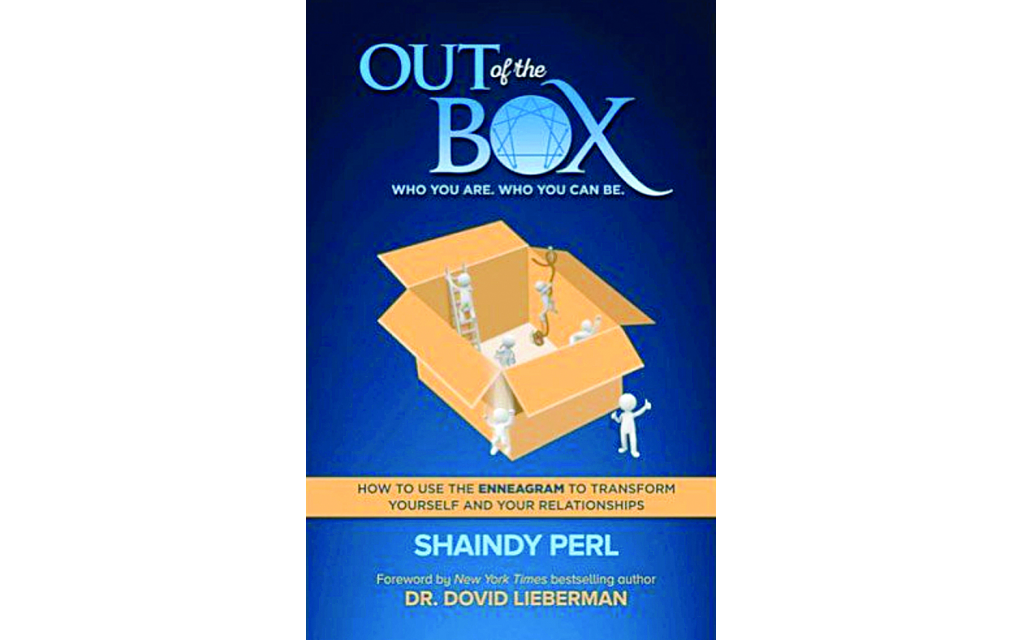The Individualist
Enneagram personality profiling helped me understand how to support my daughter.

Enneagram Type Four: The Sensitive, Introspective Type
A dear friend of mine is a deep and emotional “four.” Her daughter struggles with anxiety, and she often finds herself advocating on her daughter’s behalf. She wants teachers to lessen her daughter’s workload so that the girl won’t become too stressed or overwhelmed by school work.
Recently, however, she had an epiphany. “I find it so distressing to watch my daughter in pain, and I’ve realized I often advocate for her in order to protect myself,” she observed. “I must try to be more objective so that I can do what’s best for her. That may sometimes mean pushing her to be a little stronger, to help her recognize what she is capable of, even if her growing pains may be difficult for me to watch.”
Get The AJT Newsletter by email and never miss our top stories Free Sign Up
This was written about me. I’m the mother. In her new book, “Out of the Box: Who You Are. Who You Can Be.”, author Shaindy Perl looks at Enneagram personality profiling, which groups people into nine categories, and how we can move beyond our inherent nature toward growth and change.
It’s not easy. In fact, it’s arguably the most difficult thing we will do in our lifetime.
In order for “fours” to grow, she and other experts explain, we must learn to take control of our strong emotional world and channel our creativity and emotional depth constructively. My daughter is teaching me to do just that.
Of course, when life challenges us to change, we don’t always accept it graciously, Perl says. More often than not, we fight it vehemently or ignore it completely.
When my daughter, a straight-A student, would come home crying about too much homework or too many tests, my first instinct was to relinquish her of this seemingly undue stress. I would hear her crying on the couch and my own heart couldn’t bear it. I would grab the phone and reach out to teachers and administrators for help.
I sometimes blamed the dual-curriculum rigor: a complete set of English subjects compressed into half a day, combined with a half-day of Judaic subjects, most of which are completely unfamiliar to me. Yes, I have a graduate-level education, but things like Navi and Rashi weren’t part of it.
My own Judaic education included Sunday School, and then pre-bat mitzvah classes each Tuesday evening. I chose to continue on, attending weekly Judaic courses throughout high school. Over the past 12 years, I delved into Jewish learning with rabbis, rebbetzins and chavrusahs (one-on-one learning partners) from around the world, including Israel and New York.
Yet it was still not even close to the rigor and depth of what all my children and my daughter are learning in school, including the five years she attended Torah Day School of Atlanta.
But in trying to rescue her from a workload I deemed excessive, I was in essence telling her she wasn’t capable of handling it. One of her school administrators had tried to assure me that she didn’t need her workload lightened, yet I continued to feel like he was not hearing my pleas.
In hindsight, I should have focused more on equipping my daughter with the confidence and tools to succeed even in difficult situations. Thank G-d I’m learning this now, while she and her siblings are still relatively young.
Recently our daughter was tested, following up on an evaluation several years earlier that suggested a potential reading deficit. The psychologist who administered the new test said it’s his job to look for “things” — potential problems.
After several days of in-depth psychological-educational testing, he couldn’t find a single “thing.” In fact, she’s very intelligent and potentially gifted in many areas, the test results showed. She’s even good with math and engineering-type concepts.
When I shared the findings with my daughter, she looked at me with relief and said, “You mean there’s nothing WRONG with me?”
“No sweet girl, there is nothing wrong with you,” I said. “In fact, you’re capable of accomplishing pretty much anything in life you set your mind to.”
She’s been a different person since that moment. She smiles more and overall is a happier, less stressed-out student. And when she and her siblings cry out for help, though my first reaction is to remove the source of stress, I try instead to help them look within and find a way to work through it.
It took more than a decade of tears and heartache — and a lot of prayer — to reach this moment. As Perl explains, a stressful situation can actually be a road sign on our life’s journey, inviting us to grow.
When we choose to see the people and situations that challenge us as an invitation to grow, she says, our journey can take us to places we never imagined we could reach.
Mindy Rubenstein documents her spiritual struggles and discoveries in print and online. After living in various Jewish communities with her husband and children, including Atlanta, Virginia and Maryland, they recently settled down in their home state of Florida. You can read more at www.MindyRubenstein.com.




comments